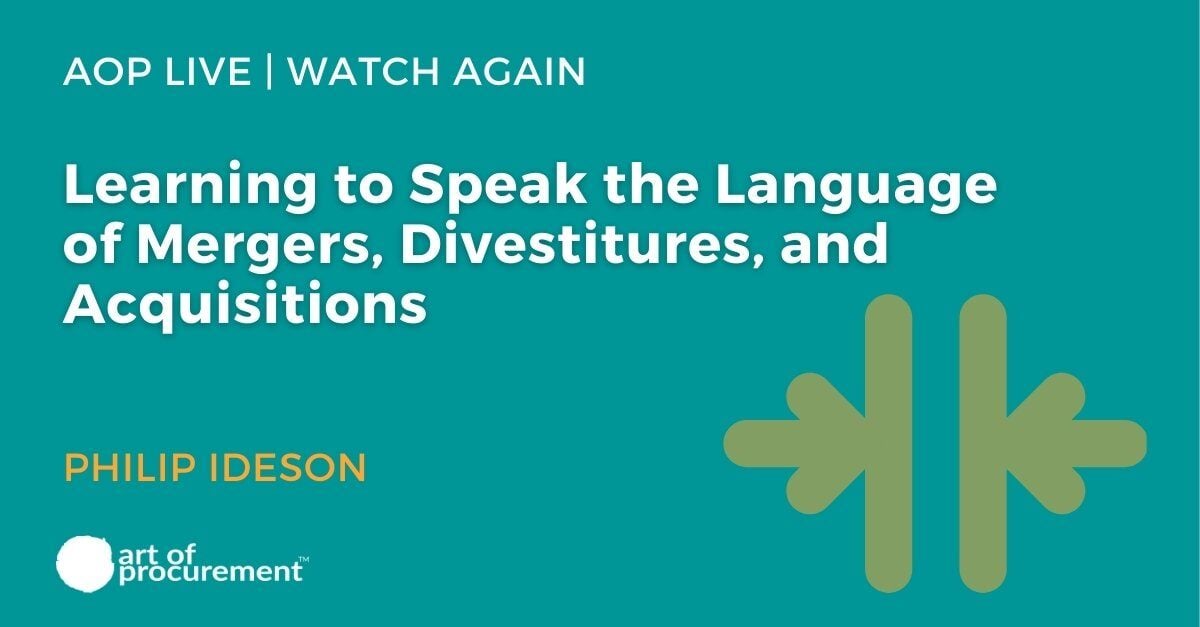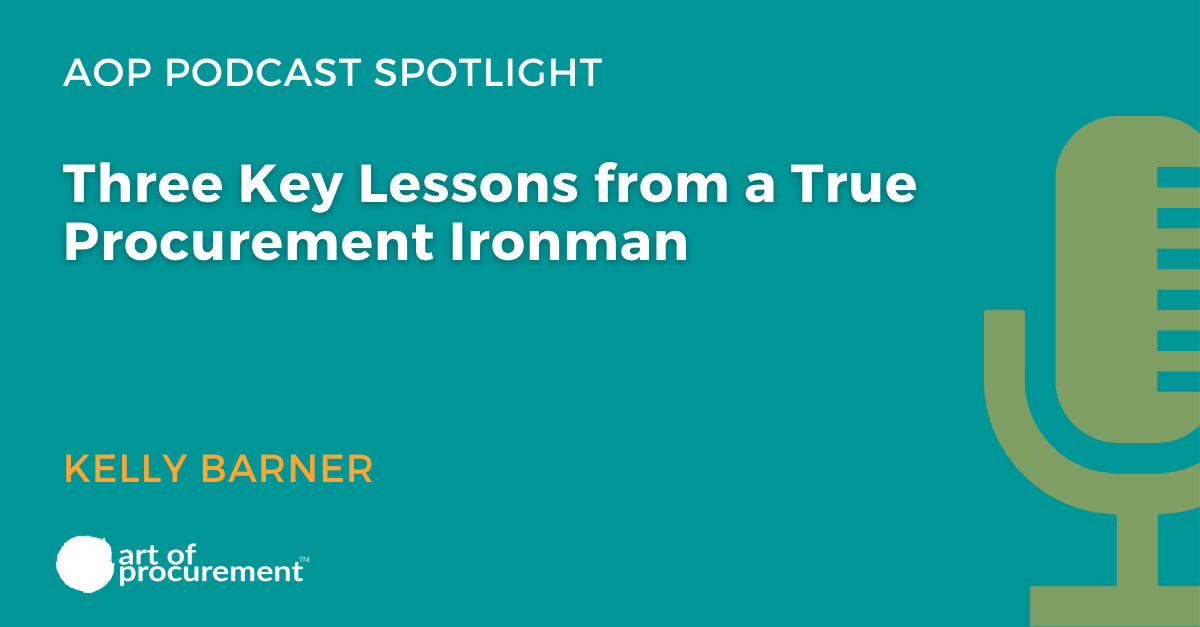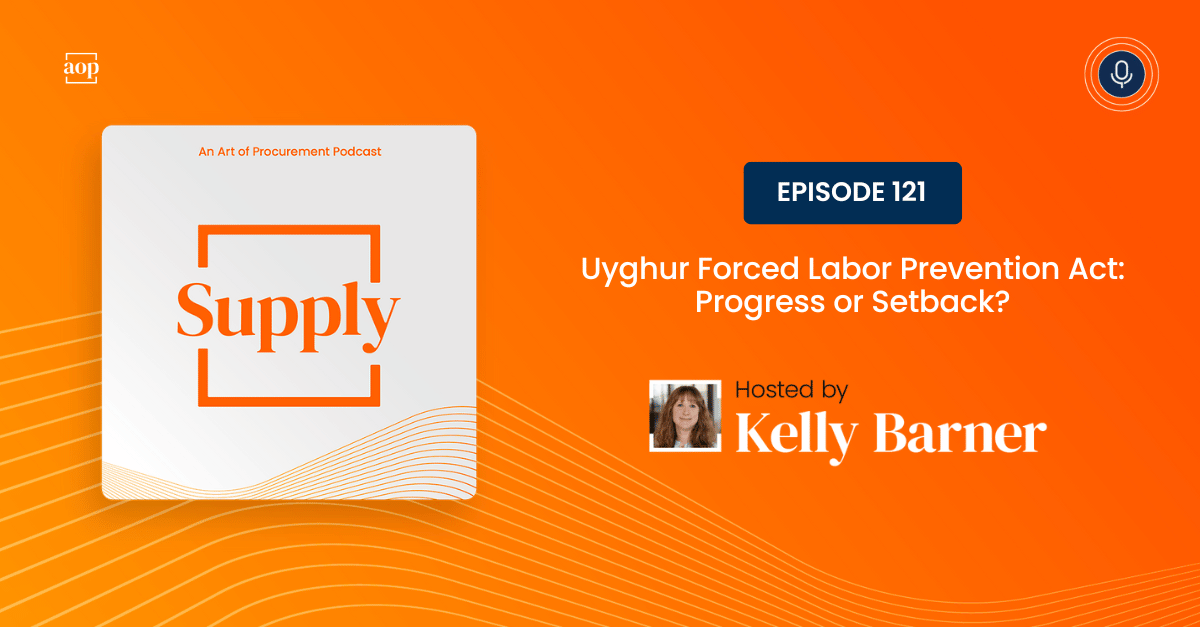1 min read
Learning to Speak the Language of Mergers, Divestitures, and Acquisitions
Philip Ideson : Updated on December 1, 2024

“Procurement professionals tend to want to get into the data and ask a lot of questions. To find yourself in a diligence process with limited information and trying to either execute on or establish a proper investment/deal thesis I think procurement professionals – if we are not careful – can get in the way.
The trick is understanding and being able to speak about acquisitions and divestitures. The first stage of demonstrating value is understanding the language. Let’s be empathetic to those corporate development folks that are trying to get the deal done and pick and choose the right questions to ask and the right information, too.”
– Chris McCarney, Principal, KPMG, LLP Procurement and Outsourcing Advisory.
During my procurement career, I have been through divestitures of divisions within larger organizations where I went with the divested organization as well as times when my team was spun out into a new organization. In both cases, you’re doing some amount of re-designing and re-imagining what the procurement organization will offer and how it will be structured.
We recently asked the Art of Procurement community via a LinkedIn poll what their experience has been with mergers, divestitures, and acquisitions. As you can see in the results below, an overwhelming 80% have been through one of these transitions, even if procurement didn’t have a front row seat.

There is huge (and often untapped) potential for procurement to play a more active role in these deals, one that may even determine whether the anticipated synergies and opportunities are realized.
To learn more, we were recently joined by Chris McCarney and Marcos Cortes from KPMG, LLP for an AOP Live session entirely focused on M&A activity. They provided advice for procurement teams looking to increase their role in the deal cycle, ensure that they are involved sooner, and work through post-deal complexity.
Watch our one-hour session on demand to learn about:
- The role that procurement’s data and analytical capabilities can play during and after the deal cycle
- How procurement can overcome internal objections to their having insight into the status of a deal and what supply-related commitments are being made
- What kinds of opportunities exist for procurement after the deal is done – including a number of tie-ins to digital procurement transformation




